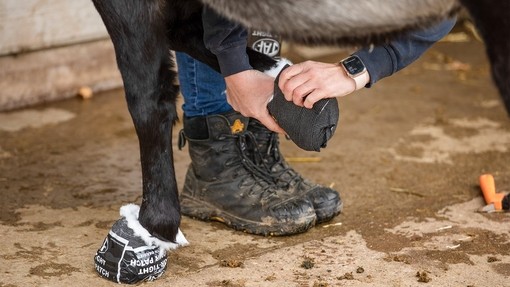
Our veterinary services
Our veterinary hospital has surgical facilities with a diode laser for sarcoid surgery and is well-equipped with a DR x-ray system, mobile and hospital-based ultrasound machines as well as an endoscope - all made available thanks to the generosity of our supporters.
We have an onsite laboratory that runs routine biochemistry and haematology tests as well as faecal worm egg counts and endocrine testing for ACTH and insulin.
The laboratory accepts samples from veterinary practices and, while it is not run for profit, donations are requested to cover the cost of running samples. Take a look at our diagnostics services page to find out more and download a laboratory submission form.
The veterinary team are happy to provide advice to vets and we can also provide CPD to practices. The team also delivers education and training to veterinary schools and farrier colleges.
Donkeys pose several diagnostic challenges of which the most important one to be aware of is their behavioural responses to pain.
- These are often subtle in comparison to the horse and non-specific meaning that a detailed clinical examination including blood sampling is required to aid diagnosis.
- Signs of dullness including lowered head carriage, lowered ears that are unresponsive to stimuli, inappetance, reluctance to move, and isolation from companions may indicate a very sick donkey.
- Donkeys are very susceptible to hyperlipaemia, which can occur as a primary condition but is often secondary to some other disease process.
- Prompt treatment to reverse the negative energy balance and manage any underlying disease is required to increase the chances of a successful outcome.
Clinical care resources
This course will provide you with valuable information for trimming donkey feet and applying orthopaedic treatments to donkey feet through sharing the different techniques used by The Donkey Sanctuary farriers and veterinary surgeons.
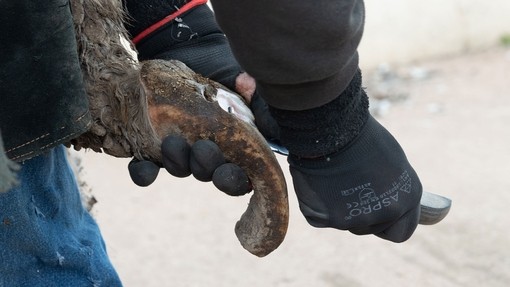
This course covers areas that are high priority for donkey welfare, due to the morbidity and mortality of the conditions addressed.
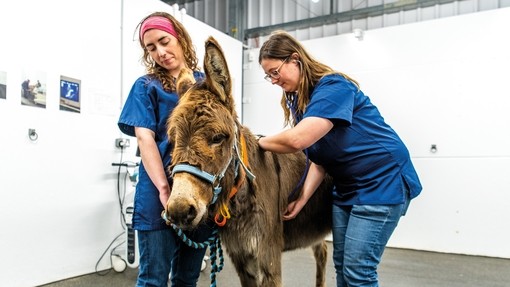
The third of our courses on equid dentistry is focussed on dental disorders.
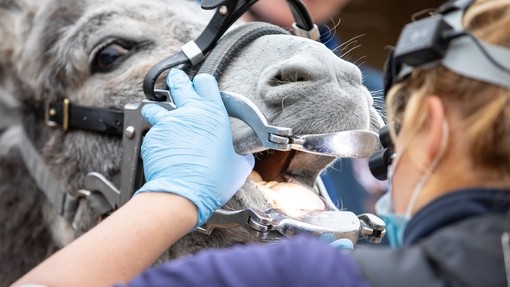
Participants will develop a deeper knowledge of the underpinning theories of equid dentistry and thereby, aid the promotion of practical skill for the prevention and treatment of dental disorders.

In the fourth of our equid dental courses, we explore the most common instrumentation available.
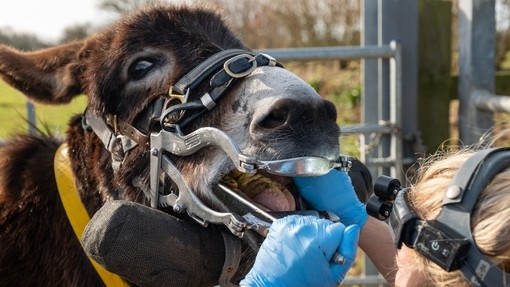
The second of our courses focuses in on the diagnosis of equid dental disease.
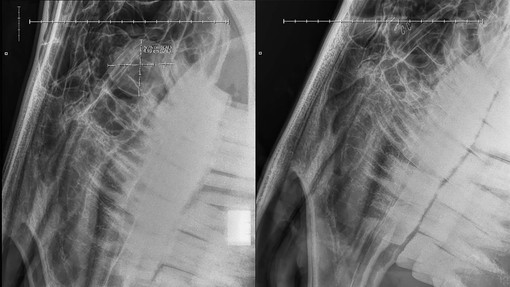
The first in a progressive series of courses designed to establish a scientific, evidence-based approach to equid dentistry.
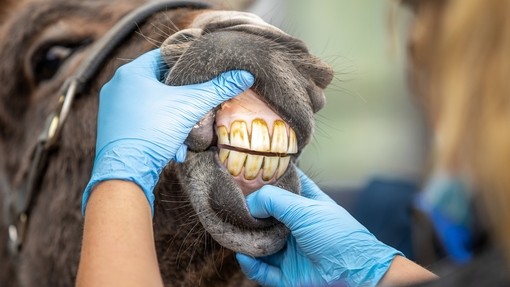
This course is recommended for veterinary surgeons and veterinary students who are asked to castrate donkeys and wish to increase their confidence in their recommendations and technique.
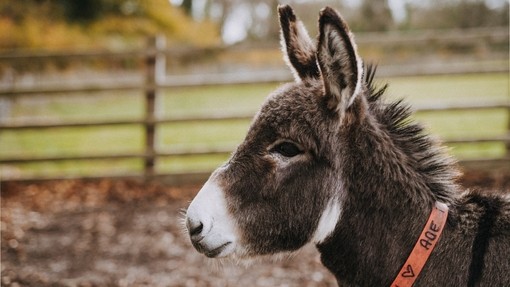
This course is recommended for veterinary surgeons and veterinary students who may see donkeys occasionally and wish to be more confident in their knowledge and approach to this species.
